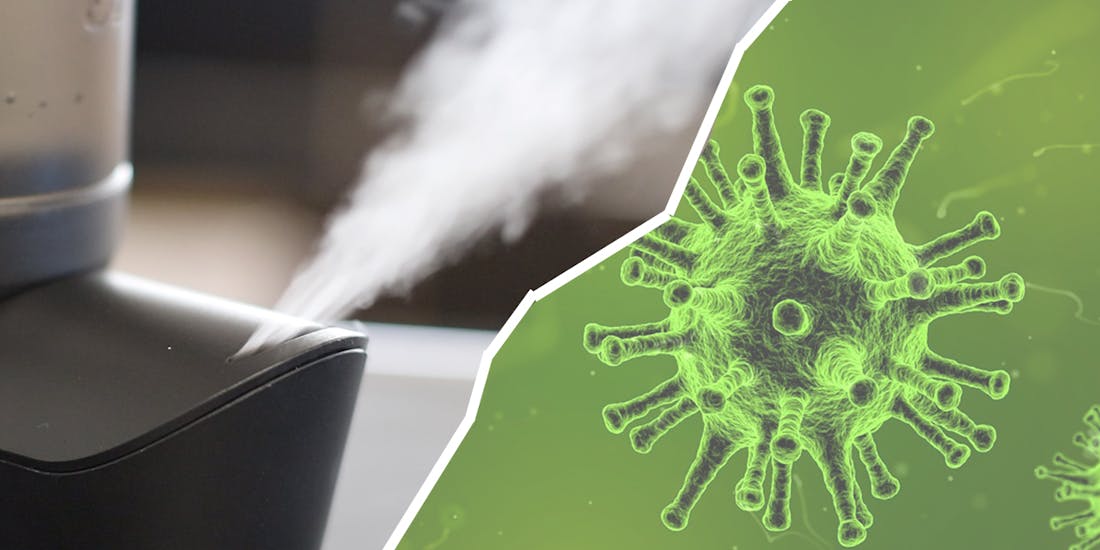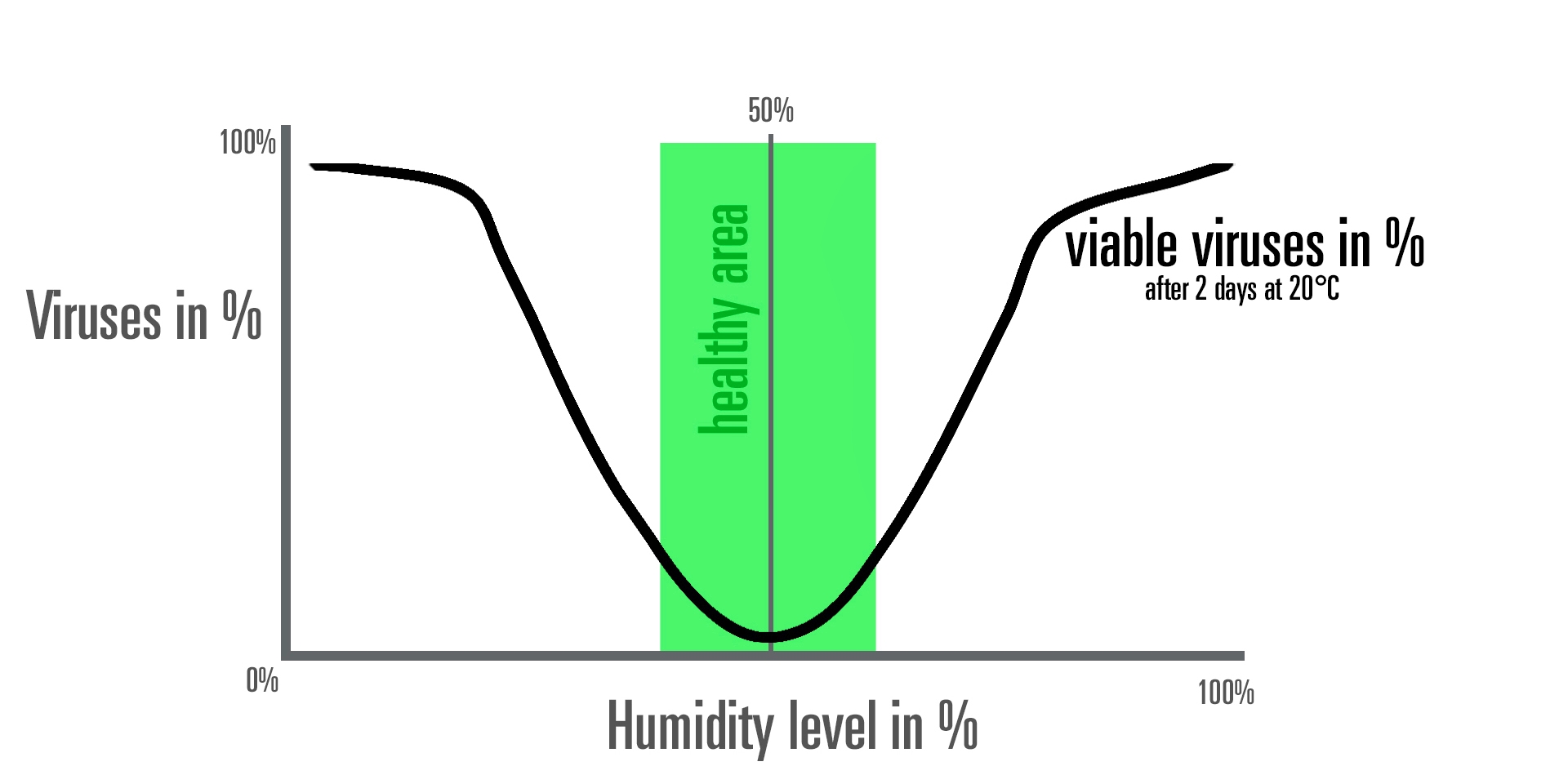
Samuel Wyss , 25 October 2021
Virus protection
Do air humidifiers protect from coronavirus?
The coronavirus and the related COVID-19 disease are unfortunately still spreading all around the world. We at Stadler Form check the latest research and scientific reports about the coronavirus regularly and publish what we find on this blog.
In the following video, Samuel explains to you whether a humidifier can protect you from the virus.
Does a humidifier help against the coronavirus or not?
Not an easy question to answer because a lot of studies are being published these days about the coronavirus. The University of Stuttgart found in its current study (in German) that wearing an FFP2 mask and regular ventilation are the most effective methods in the fight against the virus. If ventilation or wearing a mask is not possible or not desired, the use of an air purification device offers additional protection against viruses. To fully understand the coronavirus, scientists around the world will have to carry on with their research in the years to come. At this point, we would like to explain two important reasons for using a humidifier.
Less viruses on surfaces at a relative humidity level of 50%

Behaviour of the virus in the air at an optimal humidity level
Usually, viruses do not just float in the air but are attached to finest water droplets (particles). Those can remain airborne for a certain time. During this time, the risk of infection is very high. The behaviour of these particles is different in dry and humid conditions. In dry air, the particles are lighter and therefore remain in the air for a longer time. The humid and heavier particles fall down to the ground or to surfaces where they are less harmful. In optimally humidified air the exposure to viruses can therefore be reduced.
Should I buy a humidifier to protect myself from the coronavirus?
According to the two aspects mentioned above, the use of a humidifier can be beneficial to reduce exposure to coronavirus. However, even more important are the protection measures we do have in our own body (e.g. mucous membranes). Our immune system works best with optimally humidified air. This means that a level of 40 to 60% relative humidity helps our body to be strong and healthy and optimally protect itself against external influences.
How to measure the humdity level?
Now you know, that a relative humidity level of 40–60% is ideal. But how do you measure the relative humidity in your home? Check this video to learn more.
If you have questions related to indoor room climate, please get in touch with us. Or subscribe to our newsletter to regularly get informed about current topics regarding indoor climate, experience reports or Stadler Form insights.











